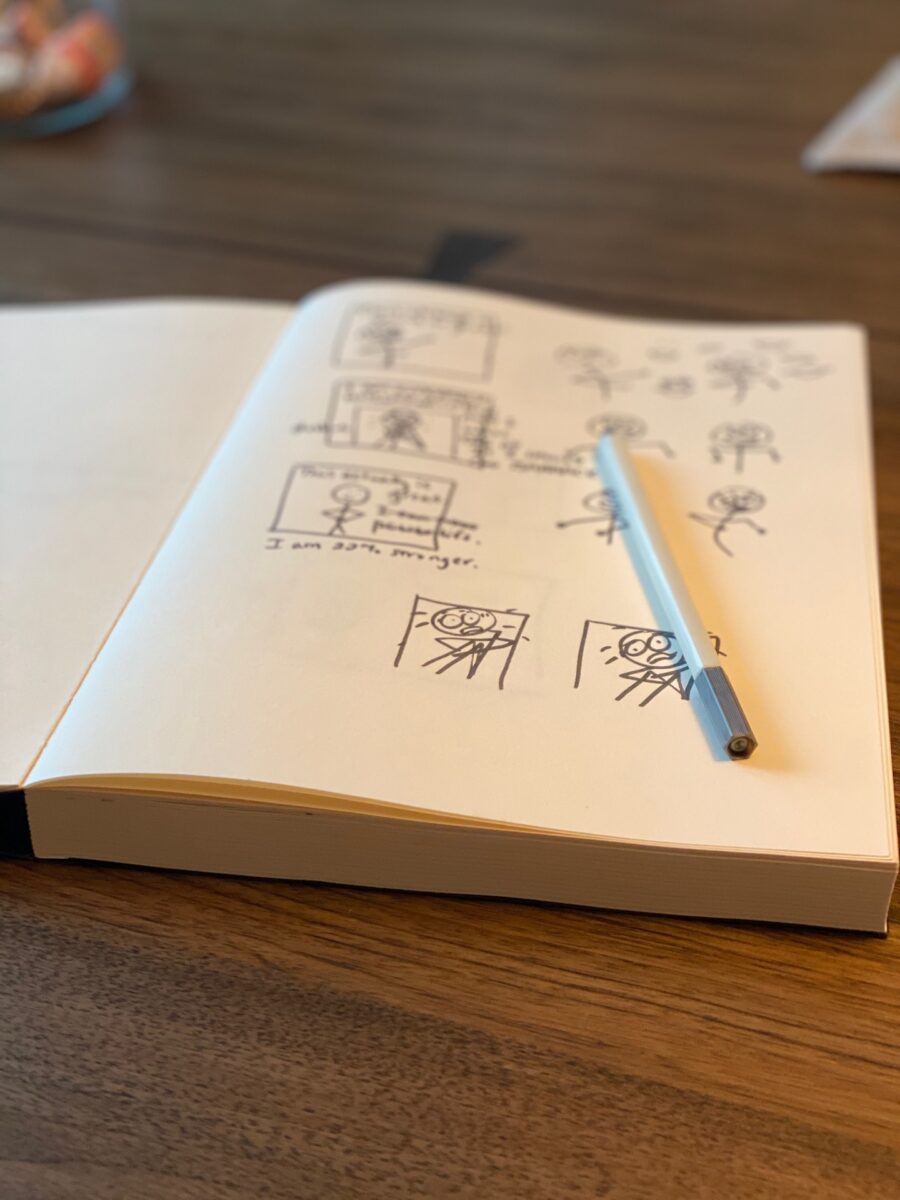Creativity update.
A few months ago (MONTHS?!), I wrote about creativity on my old blog, recommending that all of us find some time to put something into the world that didn’t exist before.
Then I became so enamored with my own advice that I quit my job and became a writer.
So now that my life is kind of structured around creativity, I’ve learned a few things that I shall share with all of you, my fellow cross-stitching, oil painting, Tik Tok-making creative warriors.
1. Creativity requires some cross-training.
Sports metaphors make me uncomfortable, but I’m pretty sure I understand that you can’t work the same muscles all the time without things starting to fall out of their sockets, and so it is for creativity. Elizabeth Gilbert is a big proponent of this in Big Magic (and so was Einstein, she notes). If you’re stuck, do something creative that is completely outside your chosen discipline.
For example, if you’re a painter and you can’t paint, go take an interpretive dance class. If you’re a pianist and you can’t… piano, start writing Sherlock fan fiction. “Call attention to yourself with some sort of creative action,” Gilbert says, “and—most of all—trust that if you make enough of a glorious commotion, eventually inspiration will find its way home to you again.”
After I read Big Magic, I bought myself a sketch book and some Gelly Rolls, and I can confirm that doodling crudely rendered trees does, in fact, help the words start flowing again. So does taking pictures of leaves with different Instagram filters, so does trying to read James and the Giant Peach to my children in accurate regional accents, and so does rolling pie crust. I’m not sure that the pivot has to be to anything high-minded, useful, or attractive—it just has to make you feel like you’re conjuring things that didn’t exist before.
2. Art in, art out.
I like this advice from Pete Holmes even better: “You need to consume art to make art.”
Now, as a former English major, I can tell you it is not revolutionary to suggest that if you want to write in a certain style or genre, you should read a bunch of other work in that style or genre. Your writing voice is kind of a gelatinous blob that absorbs whatever it rolls over, and this is handy to know when you’re slogging your way through two or three composition courses a semester.
What Pete talks about, though, is less about manipulating your talents and more about inspiring them. I’ll summarize from the episode (but seriously, listen to his podcast, it’s delightful): Frequently and regularly, as part of the creative process, he makes time to go to art museums or to watch great movies and TV shows. These are not breaks; they are a way to feed his creativity little bites of nutritional yeast.
So… you watch TV not like it’s your job, but as part of your job.
Does that give you hives?
If you were raised with a good old fashioned Puritanical American work ethic, this may offend your sensibilities a bit. It’s taken me some getting used to, that’s for sure. But I keep finding over and over that creativity is not really interested in the methods that achieved me professional success as a teacher. Overstructuring and overworking, perfectionism, adherence to deadlines, disappearance of work/life boundaries, uncomfortable but stylish wardobe?
Creativity says, Meh. Give us something fun.
We’re not much of a TV household (not because we’re intellectual snobs but more because I am easily traumatized by anything other than cooking shows), but I have taken the liberty of interpreting this as permission to play Zelda in the school pickup line if I choose. And you know what? From time to time, I do choose it. (However, I will cop to trying to keep the Switch discretely below the driver’s side window because social norms, and I am a work in progress.) But you know what else? IT WORKS. Saving Hyrule is my creativity’s favorite flavor of protein shake, and you have my permission to find yours, too.
3. Creative work is therapy.
If you struggle with needing approval and/or feedback from others, may I highly recommend a writing career? Preferably involving an infrequently visited personal blog and submissions to magazines that require 12-15 weeks to send you one-line rejection letters?
For fourteen years, I had a job in which I received real-time performance feedback every single day. Although it did occasionally come in the form of a plastic fork jammed into the electric pencil sharpener, 99.9% of my days were filled with kind words, hugs, high fives, and a general sense of connection with the vibrant little humans in my charge.
My current career is a slight contrast to that.
But that’s okay—awesome even—because me choosing writing is kind of radical immersion therapy, like strapping an aquaphobic psychiatric patient to the mast of a ship. I suspect this is a large part of why God elbowed me onto this path. Need professional validation from others? Well then, let’s put you in front of this laptop every day, send your words into the noiseless ether, and make your only coworker a puppy who thinks you wield too many words and not enough Cheez-Whiz.
What I am already finding, though, is that the more I am forced to let go of that RECOGNIZE MY EFFORTS rope, the more easily the creating comes. The ol’ ego doesn’t love seeing those single digit page views, but I also find that nearly all creative disappointment can be remedied by doing a Mr. Burns impression and muttering that everything is working perfectly.
So, if you feel creatively blocked by the pressure of approval, try turning your goals around. Aim to make something people will be pretty lukewarm about. Being not famous and not particularly successful is actually a pretty great place to be: the lessons flow freely, and it’s cheaper than therapy.
Go create, my weird and wonderful friends.


